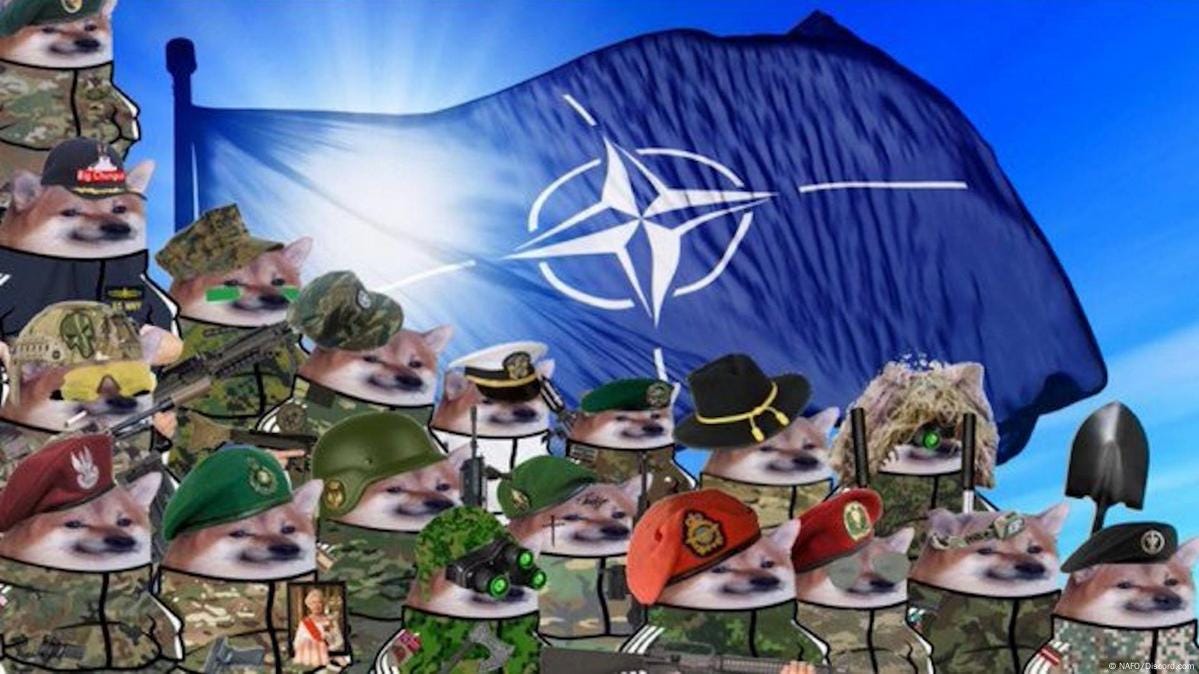Elon Musk may be the world’s richest man, the self-proclaimed “First Buddy” of Donald Trump, and the temperamental admin of one of our largest social media platforms.
But you get that sense that more than any of these roles, what he would prefer is to be the world’s leading memelord — and he can’t be, because he just isn’t that funny. The situation has all the makings of a Greek tragedy, if King Oedipus’ fatal flaw was being cringe.
One of King Musk’s favorite memes is Doge, a decade-old image of a Japanese dog named Kabosu that went viral in 2013. The word “doge,” a Tumblrspeak cutesy way of referring to dogs, was attached to the photo and became the namesake for his “Department of Governmental Efficiency” (DOGE) his new project with Vivek Ramaswamy. DOGE promises to cut regulations and mass-fire bureaucrats to make government profitable — doing this through a vaguely-affiliated para-governmental organization, of course, is bonkers.
The acronym choice reflects Elon’s goal here. Every time a seventy-year-old Senator on television says the word “doge,” it’s a victory for Elon’s brand of chronically online poster. The goal is less to cut the government’s budget than to defund and delegitimize the professional class which runs it. DOGE exists to swap a professionalized regime based on rules, tradition, and bureaucratic processes for a personal regime based on the whims of people up top and the fiendish obedience of people below.
It should be added, without insulting those who love Doge, that it’s an old meme. It’s not cool anymore. Elon Musk is maybe the only person who still thinks it’s cool — unless you count Adrian Dittmann, the X account who may or may not really be Elon and as of late has filled the platform with debates over his identity and tastes. As the streamer Connoreatspants said to Adrian/Elon while playing Fortnite recently,
What you don’t realize is how far behind you are, and everybody is laughing at you. Your entire behavior is so dated, it is obvious… you say, like, ‘kek,’ the way you refer to memes you don’t even realize is selling you out… the way you look at memes is just wrong and it’s so obvious, it’s embarrassing bro.
This Fortnite stream is one of the most compelling cultural documents of our time. I hate that it seems impossible to know with any certainty which of the two possibilities is true when both are so cringe: Elon is either cosplaying as a fan account that comments “you’re such a great father” on his own posts, or somebody has made money and a career on X from using a voice modifier to sound like Elon Musk and fight with rightwing influencers. Both are so cringe and dark.
Back to Doge. The meme is fundamentally cute and harmless — a Shiba Inu with a very specific, seemingly-humanoid facial expression. The dogelore tradition expanded from there to include another Shiba Inu, Cheems, alongside various permutations of Doge which occupied different archetypical positions in meme formats made around the characters. Here was Swole Doge set against weak and puny Cheems, Horny Jail doge, “literally me” doge. The meme always signaled a kind of self-aware childishness, a playful rejection of the “correct” way to talk, be, or spell the word “dog.”
It’s worth mentioning that Doge —or, rather Cheems — was widely used by the NAFO movement in the early years of Russia’s war on Ukraine. While this is totally the opposite political vibe of Elon, the tactic is similar: Doge-profile pic NAFO posters mocked Russian government officials and propagandists online, using the childlike vibe of Doge to expose the Russians as silly, petty, and dangerous. A Russian ambassador replying to a Doge account in 2022, like a seventy-year-old Senator saying the word “DOGE” today, marked a victory over the idea of necktie-and-white-paper professionalism — a cultural form which in the case of the Russian diplomats was being used disingenuously to further an illegal war.
Elon’s specific history with Doge goes back a few years. He famously shilled the $DOGE cryptocurrency, the first major meme coin. Here, you also see his contempt for neckties and white-papers, for banks and rulemakers. He prefers a personal regime over a professionalized one, and has a fundamental distaste of authority based on process rather than decree.
On the one hand, this can manifest in small-d democratic actions (however rigged or disingenuous) like the Tesla shareholder vote, running polls to determine X policy changes, or taking ideas from anonymous stan accounts (the idea of naming the department DOGE came from one of the dogecoin-trading accounts that is always in Elon’s replies).
On the other hand, it manifests in forms of authority that feel monarchical: Elon’s retweets are full of lavish praise of his genius, he has set up his companies so that he can unilaterally make decisions, and he has made what he manages indistinguishable from himself (he is Tesla and SpaceX in the same way Louis XIV is the French state, I’m thinking of Kantorowicz and the "king's two bodies" here, where the king in medieval European theology is both a physical human body and a spiritual body, incarnating the state).
Ultimately, structures of authority based on personality serve the person at the top and his supporters most of all. And there are some advantages to such regimes: they are, in a way, transparent: what we do is what the person on top wants. They can be very nimble, changing course as rapidly as that person changes their mind. And they also sweep away the obstacles between an executive and a problem’s solution, making decisive action possible — and shielding the powerful from accountability, making it so the less powerful always have to hold the bag.
But they also have disadvantages: inheritance, as always, is a difficult question. It’s clear that Musk would like to leave his empire to his little son, X, whom he also role-played as on the platform that shares the boy’s name — but would little X want this? Maybe the biggest disadvantage of all is the pervert psychology inherent to monarchy, in which (as Oedipus Rex, the Fisher King myth, or the tweet below demonstrate) the king’s hang-ups become the kingdom’s problems.
Case in point: when Louis XIV developed an anal fistula in 1686, the French court was destabilized by his incapacitation. They hired a surgeon to remove it, but because surgery was so risky back then, and the king’s life so precious, this surgeon, Felix de Tassy, had to test out his technique on Parisians who had the same ailment as the king. Apparently, several of them were killed in the process of figuring out what kind of sharp implement was safest to put inside of the king’s butt to remove the abscess.
After the surgery was completed successfully, courtiers started wearing bandages around their backsides in imitation of the king, and begged that the same surgery (which involved inserting a thin, curved blade into the rectum) be performed on them, even if they had no anal fistulae. A triumphal ballet was composed by Lully, the court composer, and civic festivals were held in towns throughout France. This goes to show that when you have a real king with absolute power, things get strange fast.
We feel the pangs of that gross and profound psychic wound of Elon Musk’s, which he suffered maybe as a child when the other boys and his father bullied him, maybe as a middle-aged divorcee pacing the dank serotonin cage of social media, or maybe as an eccentric billionaire in a ketamine haze at a party where everybody wanted his money but nobody wanted to know him. Regardless of where he got it, this is a wound he displays with creepy gusto, venerating his own pain like one of those religious fanatics of the early 1900s who would dig stigmata into their own hands and then prevent the wounds from healing so they might display their ever-gory marks to the faithful.
What Doge signals, for Elon, is a rejection of the professional worlds and people who think they know better than him. But it also signals a retreat into childishness, a refusal to heal what hurts, or to deal with it in any way. He relates to people like a little boy relates to his Legos, which — in combination with his vast sums of money — perpetuates his unending psychic agony. None of it is about government, about making money, or even about Mars. It’s about his own body, his own psyche, his own perversion. That’s what monarchy means.
And this is how he ruined a perfectly fine meme for the rest of us.








Elon will go down as the most cringe individual in world history